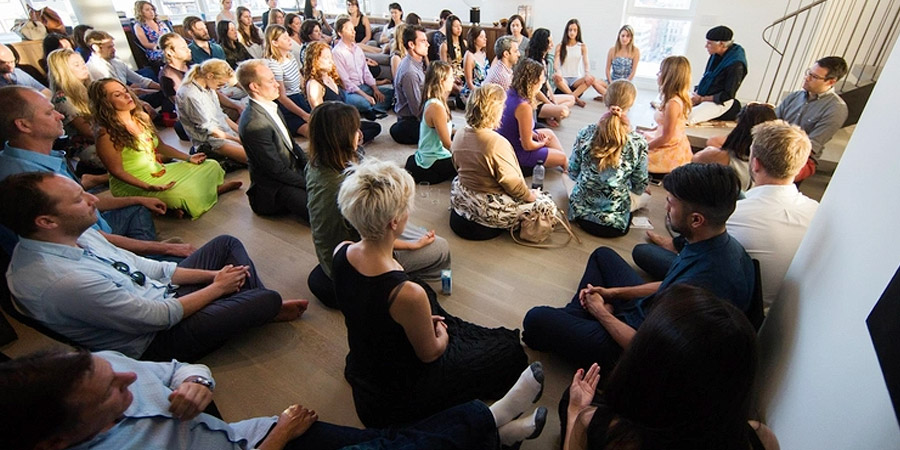While most intuitions of learning today reflect a centuries-long trend in the West to de-center our lived experience as humans and focus education on disembodied ideas and skills, humanity’s diverse contemplative learning traditions have preserved the holistic, embodied approach to learning preferred by most human societies throughout the ages and around the world.
At Nalanda institute, we offer a refuge from learning-as-usual, drawing on the Buddhist learning tradition developed in ancient India and preserved in Tibet, and we combine this timeless living legacy with person-centered forms of learning from our day, inspired by contemporary psychotherapy, therapeutic group process and social justice work.
The Buddhist approach combines intellectual learning with reflective group dialogue and meditative practice to nurture the wisdom, ethical grounding and contemplative way of being that help transform our minds, hearts and bodies to awaken our full humanity as individuals and communities.
At the same time, our learning community, curriculum and programs weave these timeless practices into our contemporary culture and way of life by offering: healing one-on-one dialogue with program faculty and directors; deep shared reflection and group processing in safe/brave communal spaces; and many ways to meditate together, explore wide-ranging practices and practice teaching in safe, caring spaces.
Our philosophy as an “open source” contemplative community is to acknowledge and support the co-creative process that keeps us learning, growing and changing together, here and now, by inviting and welcoming the active engagement of all community members in enlivening, informing and guiding our individual and collective journey(s) of awakening together.
We invite you to take a look at our communal agreements (also available in Spanish and Portuguese), which we offer as an open living set of guidelines meant to support our journey of deep learning and embodied transformation. These guidelines include:
- Learning to unlearn: step back from what you think and know, stay open to make space for fresh context or alternative views that expose your biases and expand your awareness
- Come with care: check your moment-to-moment motivation for learning, and remember to acknowledge reactive emotions to try to engage from your wisest, most caring intent
- Try to avoid blaming and yes/buts: try to share your experience with sensitive care in ways that honor differences (both/and) and invite deeper dialogue
- Speak from the heart: allow your authentic self to emerge—speak from your immediate heartfelt experience, try to avoid sharing mere information, abstractions or speaking for others
- Move in/move out: to support the group, take space when you have something to share and step back to listen when it’s time to hold space for others
- Learn from your impact: when your words trigger someone of different background or experience, instead of clarifying your intention, listen and learn how you’re heard
- Keep confidentiality: keep any private details you hear confidential, and bring only the lessons you’ve learned from it into your life and work
- Engage respectfully: get consent before you directly engage others to ask questions, share your thoughts, offer advice or physically touch
- Name the elephants: be brave in naming anything you sense or see happening (or not happening) that feels like it assumes or reinforces oppressive structures of privilege and power
- Come mindfully: bring your contemplative practice into every aspect of our time together so it can fully transform you, our community, and the world we share

